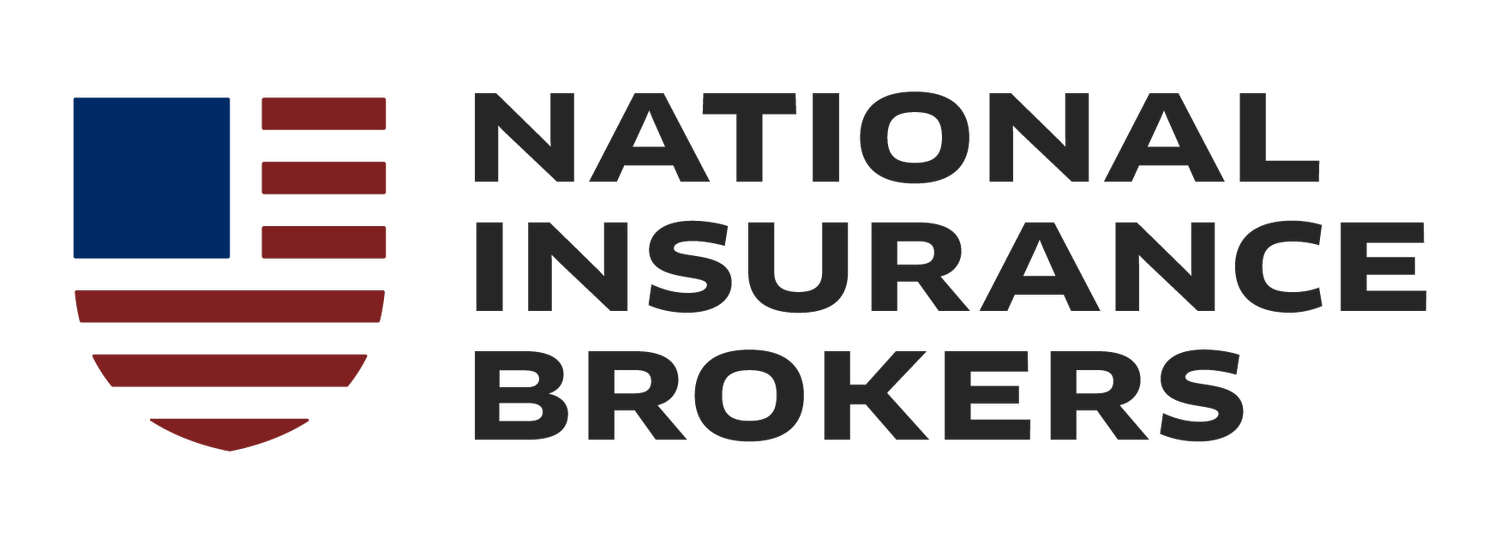Emerging Trends in Commercial Insurance: Keeping Your Business Ahead of the Curve
Staying updated with commercial insurance market trends is crucial for the success and longevity of your company. The insurance landscape is constantly evolving, driven by technological advancements, changing customer expectations, natural catastrophes, and emerging risks.
Being aware of and adapting to emerging commercial insurance trends 2023 enables you to proactively address potential risks, optimize your insurance cover, and capitalize on new opportunities.
By staying ahead of the curve, you can position your company as a forward-thinking and resilient player in the market, enhancing your reputation and attracting potential clients and partners.
Read on to learn about small commercial insurance trends and discover more about commercial insurance trends 2023.
The Evolution of Commercial Insurance
Traditionally, the commercial lines insurance market relied on well-established practices and standardized coverage offerings. However, with the rapid advancement of technology and changing business landscapes, the commercial insurance industry has experienced a paradigm shift.
Technological advancements, such as artificial intelligence, big data analytics, and the Internet of Things (IoT), have revolutionized risk assessment, policy underwriting, and claims processing.
Startups such as National Insurance Brokers are introducing innovative solutions that streamline insurance processes, enhance customer experiences, and provide real-time risk monitoring.
Moreover, general liability and commercial property insurance buyers face a dynamic market with evolving patterns. The demand for tailored policies to address emerging risks such as cyber risk, extreme weather events, and social inflation has increased. Insurance agents and brokers are vital in guiding buyers through these evolving trends in certain lines and helping them navigate the market.
Technology-Driven Innovations
As technology continues to advance at a rapid pace, the insurance industry is leveraging innovative solutions to overcome challenges and redefine the way businesses manage risks and optimize their operations.
Integration of Artificial Intelligence (AI) and Utilization of Big Data and Analytics
The insurance industry faces challenges in managing risks due to increasing customer data. Gathering scattered and unstructured data leads to difficulties in decision-making, causing errors and employee burnout. Workers spend significant time searching for external data, which is costly and time-consuming. Maintaining compliance and reputation becomes more challenging in a dynamic regulatory environment.
Insurance companies are adopting AI to enhance knowledge management and big data processing to address these issues, resulting in improved experiences for employees and clients. A significant aspect of this adoption involves integrating AI and machine learning into the underwriting processes.
These cutting-edge technologies empower insurers to efficiently analyze massive volumes of data, resulting in more precise risk assessments. Through the effective utilization of big data and advanced analytics, insurers can significantly improve pricing accuracy and provide customized insurance options to buyers of commercial property and casualty insurance.
Telematics and Internet of Things (IoT)
The introduction of telematics and the Internet of Things (IoT) has also revolutionized real-time risk monitoring. Telematics utilizes sensors and GPS to gather data on vehicle usage and driver behavior. This data enables insurers to assess risk accurately and set appropriate insurance pricing.
IoT devices installed in commercial vehicles enable insurers to collect data on driving habits, such as speed, acceleration, braking, and location, leading to the development of usage-based insurance (UBI). By leveraging this data, insurers can gain insights into vehicle usage patterns, identify potential risks, adjust industry premiums accordingly, and even detect fraudulent claims.
Telematics also contributes to better driver behavior by providing real-time feedback, incentivizing safe driving practices, and ultimately resulting in fewer claims and reduced insurance costs for insurers and policyholders.
It also allows insurers to price industry premiums based on actual usage data rather than assumptions or historical information, potentially leading to profitability due to lower premiums for companies with safer driving records and reduced risk exposure.
Cyber Insurance and Data Protection
In the digital age, data breaches, ransomware attacks, and privacy violations pose substantial risks, including financial losses, reputational damage, operational disruptions, legal consequences, loss of customer trust, and compliance challenges to businesses of all sizes.
Therefore, having adequate cyber insurance coverage is crucial for protecting sensitive information, mitigating financial losses, and maintaining business continuity.
The cyber risk landscape continues to evolve, and so does the nature of cyber insurance coverage. Insurance buyers should expect changes in policy terms, pricing trends, and insurance options as insurers strive to keep pace with the ever-changing cyber risk landscape.
Engaging with experienced insurance agents or brokers specializing in cyber insurance can help companies to navigate the complexities of cyber insurance policies and ensure they have the right cover for their unique needs.
New Liability Risks and Coverage
Emerging industries bring new technologies and opportunities for businesses but also introduce unique liability risks that demand a specialized insurance cover to mitigate potential liabilities effectively.
Emerging Risks in Emerging Industries
Navigating the uncharted territory of emerging industries comes with its own set of risks, as exemplified by the rapid rise of autonomous vehicles, which hold the promise of enhanced safety and efficiency but also introduce a host of unique liability challenges.
For instance, software failures, regulatory compliance, and potential accidents can all contribute to complex liability scenarios. As a result, specialized insurance coverage tailored for autonomous vehicles is becoming crucial to address these risks effectively.
Also, the widespread use of drones in various industries has created a new frontier for liability concerns. Privacy violations, property damage, and the risk of accidents are some primary considerations.
Firms utilizing drones need to understand the evolving regulations surrounding drone operations and ensure they have appropriate insurance coverage to protect against potential liabilities.
Sharing Economy and Gig Economy
Underwriting insurance for enterprises in the sharing economy is challenging due to its unique operations and risks. One major hurdle is determining the legal liability involved in connecting buyers and sellers—the extent of involvement and representations made by the company impact liability exposures.
Startups in the sharing economy often lack historical data, making pricing and coverage analysis difficult for traditional insurers. Moreover, the evolving nature of these business models and their untested liability exposure further complicate underwriting.
To address these challenges, underwriters with industry knowledge are essential. They can analyze risks specific to a business and ensure proper underwriting. Also, understanding user agreements and state-specific laws is crucial for accurate coverage and claims handling. Collaboration with legal teams or a specialized broker helps ensure compliance.
Similarly, in the gig economy, where independent contractors provide services on a freelance basis, there are liability concerns related to accidents, property damage, or professional errors. It is essential for firms operating in these sectors to carefully evaluate their liability risks and work with insurance providers who offer tailored coverage solutions to mitigate potential liabilities.
Updates in Professional Liability and Directors and officers (D&O) Insurance
Professional liability insurance and Directors and Officers (D&O) insurance have undergone several updates and developments to safeguard professionals and corporate leaders from the relentless tide of risks and legal scrutiny.
Professional liability policies have adapted to cover emerging risks such as cyber liability, expanding coverage beyond traditional professions and including data privacy and regulatory fines. D&O insurance has seen increased scrutiny and expanded entity coverage, providing protection for claims against the company itself.
Also, D&O policies now address emerging risks like cyber-related claims, securities class actions, and employment practices liability. These updates reflect the evolving landscape of professional practices and the legal risks faced by directors and officers in today's business environment.
Customization and Personalization of Policies
In the past, commercial insurance often relied on one-size-fits-all policies that may not adequately address the specific needs of different businesses. However, the insurance industry is transforming, moving towards a more personalized approach. Many insurers now recognize the value of tailoring coverage to individual businesses' unique risks and requirements.
Benefits of Personalized Policies and Working with Specialized Insurance Providers
Here is why you should get a personalized policy from a specialized insurance agent or broker.
Enhanced Coverage: Personalized policies ensure enterprises have policies tailored to their unique needs and risk profiles. Whether mitigating cyber risks, protecting against natural catastrophes, or managing liability concerns, tailored coverage ensures that businesses are adequately insured against their most critical exposures.
Industry Expertise: Specialized insurance providers have in-depth knowledge and expertise in specific industries. They understand the unique challenges and risks firms face in those industries and can offer valuable insights and guidance. This industry-specific expertise enables companies to make informed decisions about their insurance policy, effectively manage their risk capacity, and stay ahead of emerging trends and risks.
Cost Optimization: While firms may expect personalized coverage to come at a higher price, the reality is that tailored policies can often provide more targeted and efficient coverage, resulting in cost savings in the long run. By eliminating unnecessary coverage and focusing on the risks that matter most, enterprises can avoid overpaying for insurance that does not provide adequate protection.
Risk Mitigation: Working with a specialized insurer allows firms to manage and mitigate risks proactively. These providers can conduct detailed risk assessments, identify potential vulnerabilities, and recommend risk management strategies that will reduce the likelihood and impact of potential losses and higher claims costs, enhancing their overall risk management capabilities.
It is essential to ensure payments in the first quarter will be available to cover the costs of insurance premiums.
Conclusion
It is imperative for businesses to adapt to technological advancements, embrace data-driven innovations, and address emerging risks in order to proactively manage potential threats, optimize insurance coverage, and capitalize on new opportunities.
To ensure your company is well-prepared and equipped with the right commercial insurance policy for your investment income, contact National Insurance Brokers today. Embrace change and confidently navigate the Small commercial insurance trends with the support of a trusted partner.

